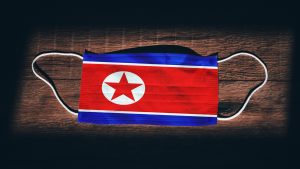North Korea can do little to treat those infected with COVID-19 given the country’s poor public health system and the lack of diagnostic equipment, vaccines, and medical treatments. That being said, the country’s state-run media repeats the claim that tens of thousands of people have “completely recovered.” This raises the question as to what the country’s standards for “complete recovery” are.
A source in Pyongyang told Daily NK on Monday that sick people are classified as “completely recovered” after spending seven days in home quarantine or seven to 10 days in a facility.
“They are released from quarantine even if they still have a fever or a cough,” he said.
In short, people are deemed “fully recovered” after a specified period of quarantine for fever or other symptoms.
North Korea recently made its first public admission of a COVID-19 outbreak, noting that patient zero had the Omicron variant. The Omicron variant has a low mortality rate and often presents itself through light or no symptoms, assuming those infected do not have any underlying conditions. Indeed, most of those infected with the variant can recover naturally.
However, North Koreans appear especially at risk to COVID-19 because of low rates of vaccination and weaker immunity due to malnutrition caused by the country’s food shortages. Moreover, the government’s failures to properly diagnose, test, or manage the disease could lead to reinfections or even new variants.
In fact, the World Health Organization (WHO) expressed concern about the situation in North Korea on May 17, noting the high risk of new strains emerging in places where the virus is left to run rampant.
Daily NK’s source in Pyongyang said that North Korean authorities may construct three new quarantine facilities based on observations of trends in the city’s outbreak.
“[North Korean authorities] plan to build three more temporary quarantine facilities if the number of patients requiring transport [to isolation facilities] increases in Pyongyang,” said the source. “It’s not a big problem because they can build them quickly by mobilizing soldiers.”
The authorities are supplying people in existing quarantine facilities with rice mixed with corn or potatoes, he said.
“In the case of the temporary facility in Rangrang District, people get half a bowl of rice mixed with corn and salted broth for breakfast, and noodles and corn with salted broth for lunch,” he added.
However, the facilities where Pyongyang residents are kept likely have better provisions of food than facilities in other regions of the country. Given that people kept in facilities outside of Pyongyang likely suffer even worse conditions, they are probably not receiving sufficient nutrients.
Meanwhile, sick people quarantining at home are receiving no supplies from the government at all.
The source said home quarantine patients are managed by the heads of inminban (people’s units), neighborhood police, local Ministry of State Security officials, health officials and doctors from local clinics. He said the heads of the inminban are supposed to “take responsibility” to ensure quarantine patients are eating, sometimes calling them to lend them rice if required.
The source said “taking responsibility” means simply checking that they are eating, not actually providing them with food. The state provides absolutely no support, he claimed.
The source also reported that many people borrow food or buy food from markets prior to going into home quarantine. “Many people are buying and storing not only food, but also firewood, salt, vegetables, and soybean paste out of fear that they, too, could be placed in home quarantine,” he said.
Prices of daily sundries have been unstable due to supply problems in the midst of North Korea’s protracted closure of its borders. When adding panic buying out of fear of home quarantines to the mix, it is reasonable to assume that prices are fluctuating significantly.
Meanwhile, North Korean authorities are arresting and confining people who escape from quarantine facilities or leave their homes during their home quarantine periods.
“People who have been arrested or detained are returned to their homes by mobile police teams under the direct command of the State Emergency Anti-epidemic Headquarters,” he said.
Since leaving home quarantine without permission is considered a serious violation of party policy, inminban keep watch over people in home quarantine day and night, regularly reporting up the chain of command.
Nevertheless, some people still escape from their places of quarantine. Most go out looking for food or daily necessities, and there are frequent arrests, said the source.
He further reported that mobile police teams nail doors shut after returning escapees home as part of efforts to ensure they cannot escape again. “Inminban guards check every day to make sure everyone is at home, using hallway, kitchen, or first-floor windows, and to check on the status of their illness,” he said.
People in the city are complaining that these measures are creating a climate of fear. “People who violate quarantine guidelines more than once will be regarded as traitors,” the source explained, adding, “People can’t even consider escaping quarantine again in the face of such intense measures.”
This article first appeared on Daily NK, which contacts multiple sources inside and outside North Korea to verify information. The Diplomat was not able to verify the claims independently.

































